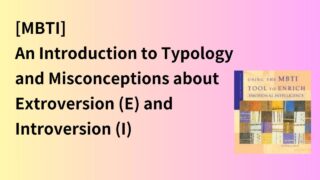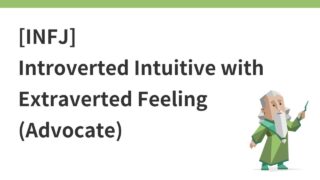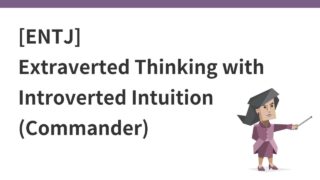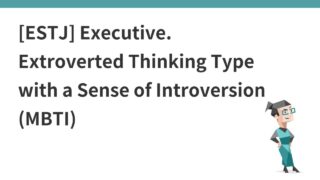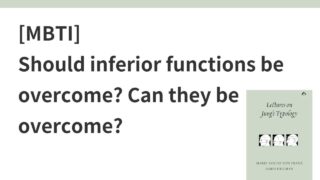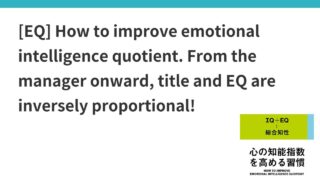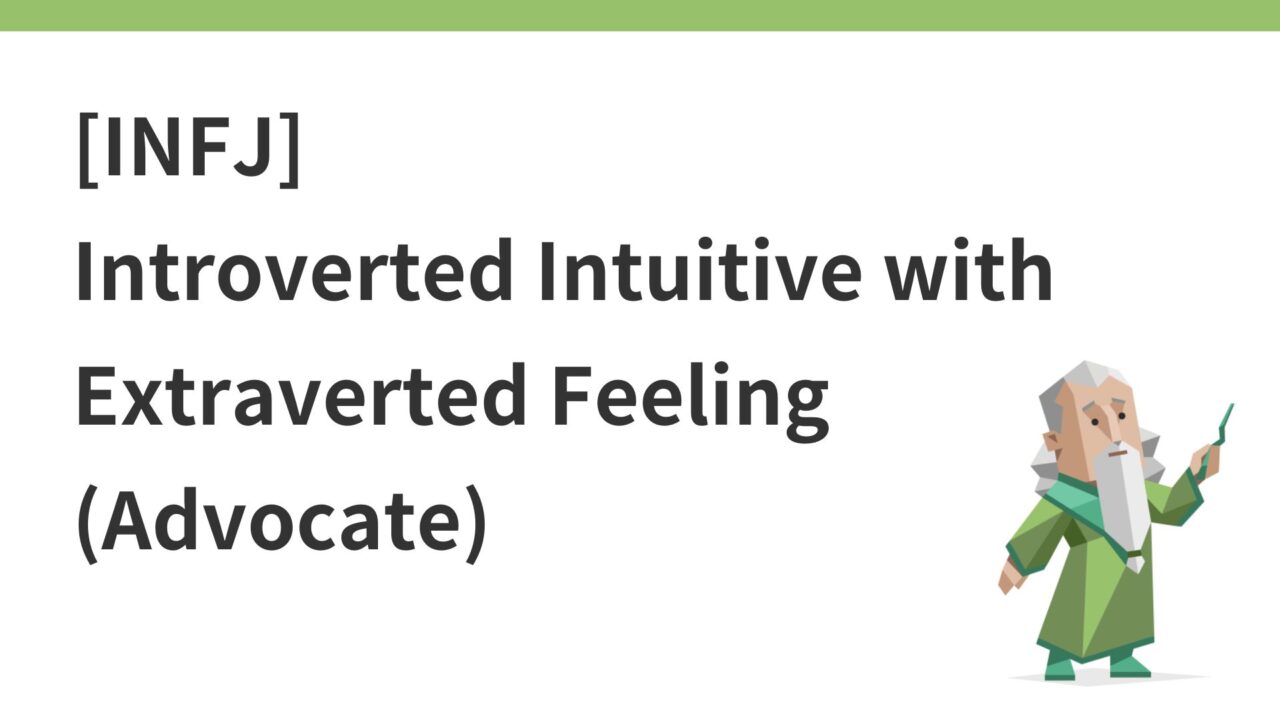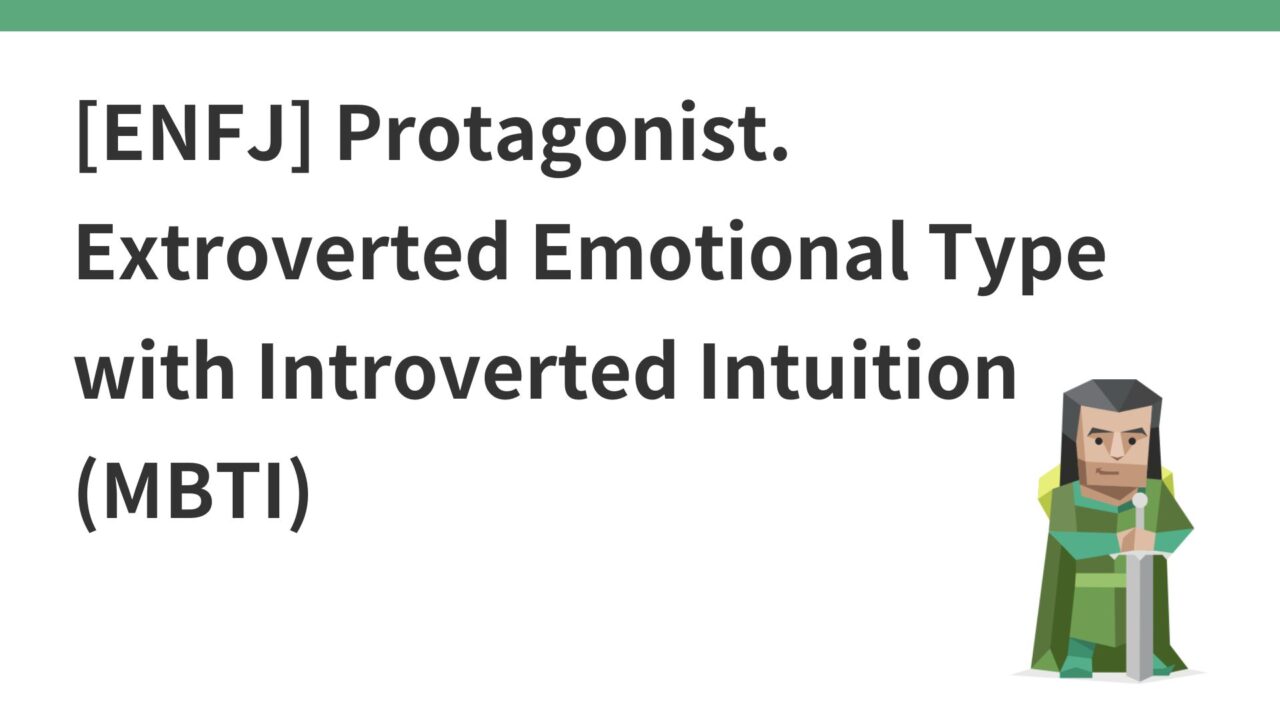- Introduction.
- Public Impressions of INFPs
- INFP: Introverted emotional type with extroverted intuition
- Characteristics and decision-making process for primary and auxiliary functions
- Differences between INFPs and INFJs
- Impression to the surroundings
- To reinforce extroverted thinking (Te) of inferior functions
- Communication Features
- Reactions during stress and points for improvement
Introduction.
I will summarize the following perspectives on each MBTI personality type.
- Public Impressions
- Characteristics of the primary and auxiliary functions and the decision-making process
- Impression to the surroundings
- Inferior Functions and How to Enhance Inferior Functions
- Communication Features
- Reactions during stress and points for improvement
In this issue, we discuss INFPs.
Public Impressions of INFPs
If you Google INFP, you will find related searches such as “INFP life hard mode,” “INFP wonder girl,” “INFP becoming,” and “INFP fluffy.
Described as “intermediaries,” celebrities include William Shakespeare, John Lennon, and J.R.R. Tolkien.
Incidentally, Japan has the largest share of MBTI at about 16% (in 2023).
INFP: Introverted emotional type with extroverted intuition
The cognitive functions of INFPs are in order of development as follows
- Primary function (the function you are most aware of): introverted affect (Fi)
- Auxiliary functions (functions that function well but are difficult to recognize in oneself): extroverted intuition (Ne)
- Third function: introverted sensation (Si)
- Inferior function: extroverted thinking (Te)
The following is a brief description of how each cognitive function affects an individual’s perception and behavior
| cognitive function | Inward (i) | Outgoing (e) |
| Intuition (N) | Pattern recognition – inner insights and future predictions | Explore new possibilities – ideas and abstract concepts |
| Thinking (T) | Logical analysis – building internal theories and organizing thoughts | Objective judgment – decision-making for efficiency and fairness |
| Emotion (F) | Deep empathy – a deep understanding of personal feelings and values | Social harmony – forming emotional connections with others |
| Sensation (S) | Details of reality – reflection of inner concrete memories and experiences | Actual experience – direct interaction and action with the outside world |
Fi-Ne: Judging ideas and information obtained from outside sources based on whether they are consistent with one’s feelings and ethics.
Characteristics and decision-making process for primary and auxiliary functions
Extroverted intuition (Ne): looking for new possibilities and ideas from the outside world
INFPs use extroverted intuition (Ne) to explore new ideas and possibilities from the outside world. They are adept at considering diverse perspectives and envisioning multiple scenarios and future possibilities.
Introverted feelings (Fi): making decisions based on one’s feelings and values
INFPs filter externally obtained ideas and information through introverted emotions (Fi); Fi is strongly rooted in an individual’s inner feelings and values, and INFPs make decisions based on whether they are consistent with their own beliefs and ethics.
They make decisions based on their own emotional reactions and values rather than rational interests and efficiencies. For example, if a project has the potential to bring significant benefits, but I do not identify with the subject matter, I may not choose that project. Make decisions based on whether a topic is something you are passionate about.
Differences between INFPs and INFJs
Both INFPs and INFJs are idealistic and introverted personality types, but differences in their internal focus and external approach emerge due to differences in their primary and auxiliary functions: INFPs are based on introverted affect (Fi) and focus on their internal values and feelings, while INFJs are based on introverted intuition (Ni) and focus on future visions and insights. and place more emphasis on visions and insights into the future.
INFPs are loyal to their own feelings and are less influenced by external expectations and norms, while INFJs make decisions based on the feelings and social expectations of others. empathy fatigue.
Impression to the surroundings
- Compassionate: INFPs are sensitive to the feelings of others and have a high capacity for empathy, which allows them to be compassionate toward others.
- Creative: He is seen by others as a creative person because he has a rich imagination and often offers new ideas and unique perspectives.
- Introverted: Introverted personality gives the impression of being quiet and calm. They often act reserved in social situations.
- Idealistic: is often seen as an idealistic person because he or she is strongly rooted in his or her own ideals and values.
- Integrity: He is true to his own beliefs and treats others with integrity. Therefore, he is easily regarded as a trustworthy person.
- Sensitive: Sensitive to his environment and to the feelings of others, he can sometimes be seen as a sensitive person.
To reinforce extroverted thinking (Te) of inferior functions
The inferior function of the INFP is extroverted thinking (Te). This function focuses on using objective data and logic to evaluate things and achieve goals in an efficient and practical manner.
INFPs may find it difficult to make decisions based on objective data or logical analysis because emotion-based decision-making takes precedence.
Planning and goal-setting exercises
Practice making concrete action plans, starting with short-term goals; develop the habit of systematic action by using to-do lists to prioritize and carry out daily tasks.
Strengthen logical thinking
Practice making decisions based on data and facts, not just feelings. For example, listing the advantages and disadvantages of a decision. Develop logical analysis and critical thinking skills by objectively evaluating your own ideas and considering other points of view.
Adoption of efficient work habits
Find ways to use time efficiently by trying the Pomodoro Technique, which uses a timer to work while taking breaks at regular intervals; use tools such as Trello and Asana to visually manage projects and track progress; and use the Pomodoro Technique to create a timeline for your work.
Incidentally, the types with this extroverted thinking (Te) most developed are ESTJs and ENTJs; ESTJs and ENTJs are very sensitive to objective data and efficiency and emphasize, or rather naturally do, organization and planning.
The ESTJ and ENTJ’s emphasis on realistic perspectives and efficiency may be helpful in striking a balance, and there are many references to this.
Communication Features
- Highly empathetic: sensitive to the emotions and feelings of others and empathetic in their dealings with them. Good at listening to others from their point of view.
- Introspective and deep: often expresses his/her inner feelings and deep thoughts in conversation. Prefers meaningful and deep discussions rather than superficial topics. Because of introspection and deep thinking, immediate responses and quick decision-making can be difficult, leading to communication delays and ambiguity.
- Reserved and calm: Avoids strong assertiveness and speaks in a calm, reserved manner. Avoids confrontation and tries to maintain a friendly atmosphere. Tend to avoid dealing directly with issues to avoid confrontation and conflict. This can sometimes lead to postponement of the issue or ambiguity.
- Emotionally sensitive: Value your own and others’ emotions and communicate in a way that respects their feelings. Take care not to hurt the other person’s feelings.
- Nonverbal communication: Sensitive not only to words but also to nonverbal communication such as facial expressions and attitudes. Able to read the detailed reactions of others.
Although the tendency to avoid conflict and competition while remaining true to one’s own values may seem contradictory at first glance, INFPs feel that their internal values are only their own and should not be imposed on others and that they do not want to damage their relationships with others while remaining true to their own values. This is due to their strong desire to avoid conflict and competition.
Reactions during stress and points for improvement
When INFPs are exposed to stress, their primary function, introverted affect (Fi), may be overexpressed or an inferior function, and extroverted thinking (Te), which is usually underused, may surface, causing a series of typical reactions.
In a competitive society, there is often an emphasis on external recognition and achievement, which can be stressful for INFPs who value internal satisfaction. They may find it difficult to live in a competitive society because they are incompatible with it. INFPs tend to avoid conflict and competition and value cooperation and harmony. In highly competitive environments, assertiveness and confrontation are often required, which can be uncomfortable for INFPs. Opportunities to cooperate with others who share the same values and vision tend to be satisfying.
Reactions under stress
- Excessive Self-Introspection: when the introverted effect (Fi) is excessive, one goes deep into one’s inner self and becomes overly reflective about past failures and negative emotions. Self-blame and low self-esteem often occur.
- Emotional outbursts: Normally calm and suppressing emotions, when stress reaches a limit, they become uncontrollable and may erupt in anger, sadness, or other emotions all at once.
- Impulsive behavior: unhealthy expression of extroverted thinking (Te) in the inferior function can lead to impulsive and extreme behavior. They often engage in temporary pleasures to escape stress, such as excessive shopping, overeating, and being critical of their surroundings.
Key Points for Improvement
- Healthy processing of emotions: Instead of keeping emotions bottled up inside, develop the habit of processing emotions in a healthy way by talking to someone you trust on a regular basis. Writing down emotions in a journal is also helpful.
Click here for an article on how to keep an emotional diary.
- Pay attention to reality: Practice mindfulness or meditation and pay attention to the present moment. This frees us from excessive introspection and negative emotions and allows us to focus on reality.
- Planned Behavior: practice making and carrying out small plans in daily life to gradually develop extroverted thinking (Te) of inferior functions; utilize to-do lists and schedules to manage tasks in an organized manner; reduce stress by managing tasks in an organized manner; use a variety of strategies to help the patient develop a sense of self-worth and self-esteem; use a variety of strategies to help the patient develop a sense of self-worth and self-esteem.
- Increase self-esteem: be aware of your values and positive evaluation of what you have accomplished so that your self-esteem does not decline. It is important to engage in positive self-dialogue and have a habit of encouraging oneself.

